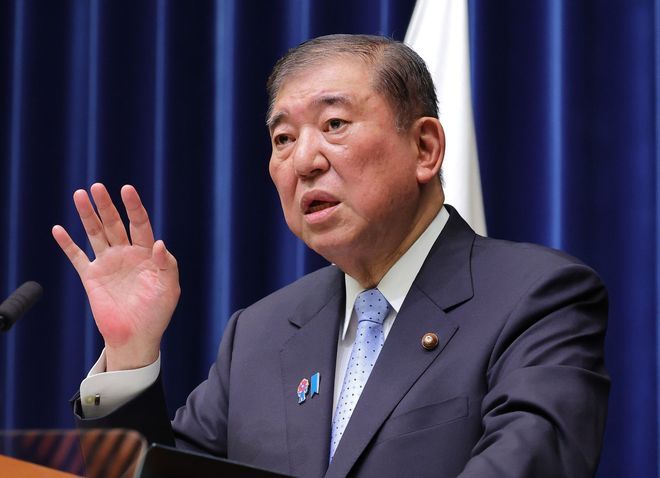Wasn’t maintaining international order based on the rule of law the fundamental policy of Japanese diplomacy?
If that principle was to waver because undue priority was placed on maintaining good relations with the Trump administration, it would be difficult to avoid criticism of holding a double standard and there could even be negative effects on the national security situation in East Asia.
At a news conference, Prime Minister Shigeru Ishiba expressed understanding toward the U.S. attack on Iranian nuclear facilities and said it “demonstrates (the U.S.) determination to prevent Iran from acquiring nuclear weapons while seeking to calm the situation as soon as possible.”
He added that it was difficult for Japan to assess the move in terms of international law because it was not in a position to accurately grasp the detailed facts behind the attack.
Without providing clear evidence that Iran was proceeding with the development of nuclear weapons, Iran cannot be considered a pressing threat to the United States.
Washington argued that the act was the exercise of its right to collective self-defense in support of Israel.
But the consensus among experts is that it cannot be allowed under international law.
When the United States began the war on Iraq in 2003, then Prime Minister Junichiro Koizumi clearly expressed his support.
Although Ishiba did not go that far, it is clear that he selected his words so it could not be considered a criticism of the United States.
After Israel launched an attack on Iranian nuclear facilities, Ishiba initially said he strongly condemned the move that was “totally unacceptable.”
But at the Group of Seven summit held soon thereafter, Ishiba went along with the leaders’ statement expressing support for Israel’s right to defend itself out of consideration for the U.S. support of Israel.
Because the United States is Japan’s only ally, the reality is that it must depend on U.S. protection as the security environment in East Asia worsens.
If criticism was directed at U.S. President Donald Trump’s judgment, that might also affect ongoing negotiations over tariffs.
European nations face a similar situation so the joint statement issued by Britain, Germany and France did not make a clear assessment of the U.S. attack.
But now with the international order on the brink of collapse with the Russian invasion of Ukraine, the fighting in Gaza and the latest attack on Iranian nuclear facilities, Japan must play a role in making the maximum diplomatic effort for the peaceful resolution of such conflicts rather than allowing domination through force.
In the vicinity of Japan, China continues its aggressive maritime advances and applying pressure on Taiwan while North Korea continues with its development of nuclear weapons and missiles.
Japan’s position was supposed to have sought regional peace and stability while not allowing the unilateral change of the status quo through force.
It must avoid a situation that places doubt on its resolve about the rule of law, which could damage trust from the so-called Global South group of newly emerging and developing nations.
–The Asahi Shimbun, June 25


AloJapan.com